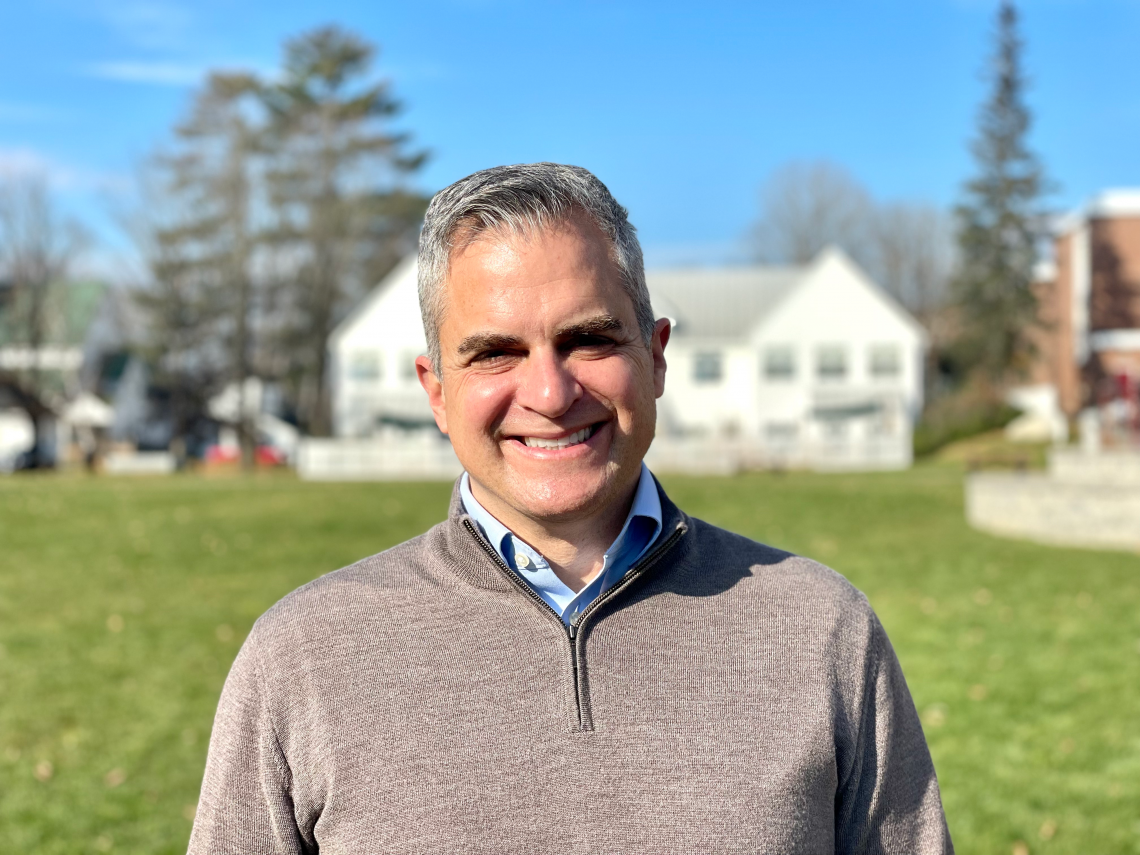In the latest dispatch from University leadership, President Serna shares how UMF’s personal touch has helped us support our community throughout the pandemic.
Dear UMF Community,
During Family Fest Weekend last month, between thrilling soccer games at Prescott Field, the movie and petting zoo on the green, and the alumni bonfire before the terrific Ghost of Paul Revere concert at Narrow Gauge Cinema, the campus felt electric. We had a record turnout of University of Maine at Farmington families, and many parents gathered for a meeting with me and other members of the leadership team.
This day came after 18 draining months, months spent juggling the day-to-day administration of running a university while keeping a close eye on our new strategic planning process. Layer on the damp blanket of COVID-19, and it sometimes felt like we couldn’t keep up. We were hit hard as an organization. And all of the people who make it so wonderful are still managing this threat—through vaccinations, testing, and quarantining the few cases we have.
But the parents who joined us on that brilliant October day were universally grateful. Over and over again, they thanked us for the way that we have handled the pandemic and shepherded their children back to campus, safely and thoughtfully. I was relieved, of course. And I agreed with them completely.

The collective efforts of UMF’s tireless COVID-19 response team have been admirable. And the commitment of every member of our community to support us in this huge endeavor has been heartening.
In recent weeks, the positivity rate of cases in Franklin County has climbed to 8.6%, well above the state’s elevated 5.5% positivity rate. But here at UMF, our positivity rate remains well below 1%. We chalk that success up to our high vaccination rate, widespread participation in asymptomatic testing, and the continued diligence of every member of this community.
Last week alone, more than 750 students, faculty, and staff participated in asymptomatic testing. Doing so helps us keep our positivity rate low. And that lets us continue to hold in-person meetings and events and to welcome fans at our indoor athletic competitions.
Regular communication has been crucial. Our UMF Safe Return team has sent weekly email dispatches to faculty, staff and students, letting them know where we stand and what resources are available. For weeks, the team prepared students that November 1 was an important deadline: On that day, all students had to be vaccinated or have filed for exemptions. We would withdraw from classes any students who weren’t in compliance with the University of Maine System’s vaccination policy. And residential students not in compliance would move out of UMF residence halls.
Here at UMF, it is Vice President of Student Affairs Christine Wilson who personally escorts students who test positive to their quarantine housing—no matter the hour. And she has walked them through the process, day by day, week by week, to reassure each student that we’re here with them.
That level of commitment demonstrates just how seriously we have taken our response to new cases, close contacts and protocols that limit the spread of the virus. Along the way, we want our community members’ experience to be as personal as it is thorough.
So it’s not surprising that when Monday, November 1 arrived, no UMF students fell through the cracks. Our dedicated faculty and staff made sure that every UMF student remained enrolled. And learning.
We all hope for COVID-19’s quick demise here on campus, in Farmington and within your communities. The pandemic has tested our resolve, to be sure. But it has also strengthened our commitment to each other and the mission of this university and the people who call it home.
Thank you, students, community members, alumni and families. Your patience and support keep us going. And I’m confident we’ll all get to the other side in good health, together.
Onward,
Edward
Dr. Edward Serna began serving the University as its 15th president on in 2019. He came to UMF from the University of Arkansas–Fort Smith (UAFS), where he served as interim chancellor. His work at UAFS, a public, four-year university with an enrollment of 6,600 students and an annual budget of $80 million, has included leading initiatives focused on student success, student retention, and data-driven innovation. He received a doctorate of education in higher education from the University of Alabama, a master’s in management information systems from Auburn University, a master of science in industrial management from Clemson University, and a bachelor of science in business administration from Winthrop University in Rock Hill, S.C. After working as a senior business analyst and strategic management consultant in the private sector, Dr. Serna entered higher education as an assistant professor of management in Athens State University’s College of Business. Prior to serving as interim chancellor at UAFS, he was chief of staff and associate vice chancellor for external funding and chief of staff and vice chancellor for strategic initiatives.

